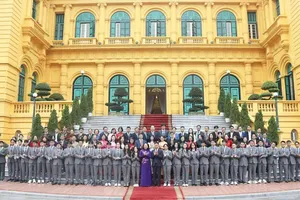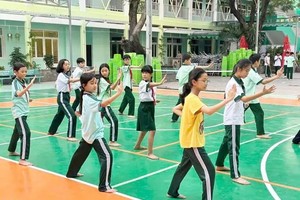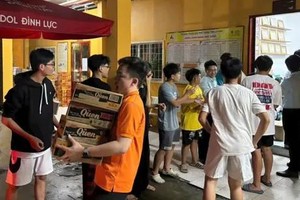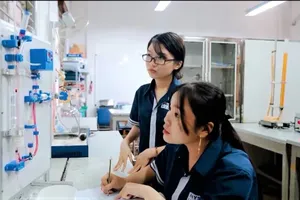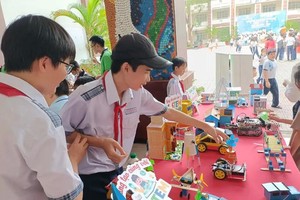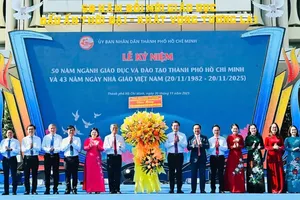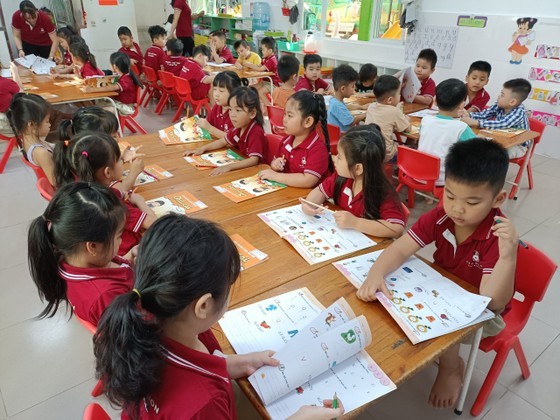 |
Illustrative photo |
This morning, Head of the Department of Culture and Society of the HCMC People's Council Cao Thanh Binh worked with the People’s Committee in Thu Duc City about the implementation of Resolution No. 27/2021/NQ-HDND on the policy of preschool education development in the areas with industrial zones.
Reporting at the meeting, Mr. Nguyen Ky Phung, Vice Chairman of Thu Duc City People's Committee informed that four industrial parks (IZs) and export processing zones (EPZs) are located in Thu Duc City. The number of preschool educational institutions in four industrial zones is 76, including 26 preschools and 50 home-based daycare facilities and private kindergartens.
Ms. Kieu My Chi, Deputy Head of the Department of Education and Training of Thu Duc City, said that there are 283 preschools and kindergartens in the city including 61 public schools and 222 non-public schools. In addition, the city has 253 independent private home-based daycare centers and preschools.
Regarding the results of the implementation of Resolution No. 27/2021/NQ-HDND in the area, Thu Duc City has 9 establishments each receiving support from VND20,000,000 to VND35,000,000 to repair facilities.
With respect to the subsidy policy for preschool children who are the children of workers and employees in the city’s industrial parks, approximately 3,679 children studying at 143 educational establishments received subsidies with a total amount of more than VND2.5 billion. The allowance was transferred directly to the personal account of parents or child caregivers. The subsidy level is VND160,000 a child monthly for nine months.
According to the statistics of the Department of Education and Training, the total number of children studying at preschool educational institutions located in the industrial zone is 6,835 but roughly 2,866 children are eligible for subsidy accounting for 41.9 percent.
Principal of Anh Hong Kindergarten Pham Thi Kim Quyen informed that 152 students out of 420 students in the school whose one parent is a worker or an employee working at industrial parks have been receiving subsidies.
Particularly for the policy of supporting teachers working at non-public educational institutions in the areas with industrial zones, teachers must meet the requirements of being directly caring for and educating at least 30 percent of children who are children of workers in industrial zones, and at the same time, they must have qualifications to meet the training standards as prescribed.
A representative of Thu Duc City's Department of Education and Training said that 40 teachers and 67 teachers received support in the 2021-2022 school year and the 2022-2023 school year. After 2 years of implementation, the total number of teachers receiving the subsidy was 107 teachers, accounting for 33.97 percent of teachers teaching at preschool educational institutions in the areas where te IZs are located. Thu Duc City has 92 teachers with intermediate degrees who have not met the prescribed standards, so they have not received subsidies.
Accordingly, Thu Duc City proposed that the People's Council of Ho Chi Minh City consider expanding the beneficiaries of subsidies because currently, according to regulations, preschool teachers must have a college degree in preschool pedagogy to be eligible to receive subsidies.






